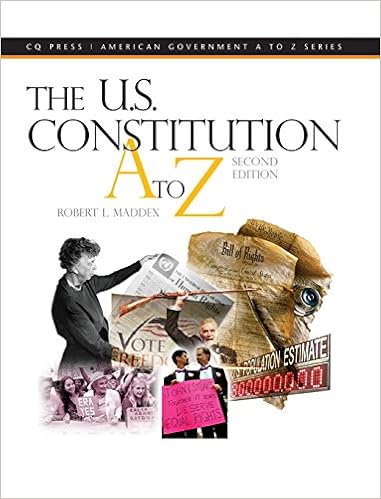Amendment XIX of the United States Constitution, which reads “The right of citizens of the United States to vote shall not be denied or abridged by the United States or by any State on account of sex,” was proposed to the legislatures of the several States by the Sixty-sixth Congress, on June 4, 1919. It was declared, in a proclamation of the Secretary of State, dated August 26, 1920, to have been ratified by the legislatures of 36 of the 48 States. The front page story in the New York Times noted the lack of fanfare for the historic event as none of the leaders of the woman suffrage movement were present when the proclamation was signed, and no photographers or film cameras recorded the event. Secretary Colby, wanting to avoid any public scene at the signing stemming from the rivalry between suffragists Alice Paul and Carrie Chapman Catt, told reporters that “effectuating suffrage through proclamation of its ratification by the necessary thirty-six States was more important than feeding the movie cameras.”
It was the State of Tennessee’s vote that provided the three-fourths of the states needed to ratify the amendment when Harry T. Burn, a 24-year-old legislator, switched his vote on the Tennessee state house floor at the urging of his mother. But the State of New York played a prominent role in the women’s suffrage movement: it was in Seneca Fall, NY where the first Women’s Rights Convention was held July 19 to 20, 1848. On November 6, 1917, the men of New York approved a constitutional amendment allowing women the right to vote, after a defeat of such a measure two years earlier in 1915, and three years before the final ratification of the 19th Amendment.
In 1971, New York Representative Bella Abzug supported a Joint Resolution in the U.S. Congress designating August 26 as “Women’s Equality Day” stating that “the President is authorized and requested to issue a proclamation annually in commemoration of that day in 1920, on which the women of America were first given the right to vote.” On August 24, the President issued this year’s Proclamation.
 For historical reading on the subject of women’s suffrage, see the Brooklyn Law School Library e-book called The Trial of Susan B. Anthony: An Illegal Vote, a Courtroom Conviction and a Step toward Women’s Suffrage by Martin Naparsteck. It tells how, following a public argument with her friend Frederick Douglass, Susan B. Anthony altered her strategy of seeking a broad range of rights for women and blacks and focused exclusively on winning the vote for women. Defying state and federal law, she voted in the presidential election of 1872, and was arrested and tried in a case presided over by U.S. Supreme Court Justice Ward Hunt, who directed the jury to deliver a guilty verdict. Fined $100, Anthony defiantly told the judge she would never pay–and never did. This is the story of the landmark trial that attracted worldwide attention and made Anthony into the iconic leader of the women’s rights movement.
For historical reading on the subject of women’s suffrage, see the Brooklyn Law School Library e-book called The Trial of Susan B. Anthony: An Illegal Vote, a Courtroom Conviction and a Step toward Women’s Suffrage by Martin Naparsteck. It tells how, following a public argument with her friend Frederick Douglass, Susan B. Anthony altered her strategy of seeking a broad range of rights for women and blacks and focused exclusively on winning the vote for women. Defying state and federal law, she voted in the presidential election of 1872, and was arrested and tried in a case presided over by U.S. Supreme Court Justice Ward Hunt, who directed the jury to deliver a guilty verdict. Fined $100, Anthony defiantly told the judge she would never pay–and never did. This is the story of the landmark trial that attracted worldwide attention and made Anthony into the iconic leader of the women’s rights movement.
 In this podcast, Brooklyn Law School Professor Heidi Brown talks about her article, The Emotionally Intelligent Law Professor: A Lesson from the Breakfast Club, 36 University of Arkansas at Little Rock Law Review 273 (2014). The article examines the importance of teaching Emotional Intelligence (EI) as part of the law school curriculum and as a component of “professionalism.” In April 2016, Professor Brown joined the faculty at Brooklyn Law School as Director of the Legal Writing Program after serving as Associate Professor of Law at New York Law School, where she helped launch that school’s Legal Practice program. Before that, she was an Associate Professor of Legal Research and Writing at the Chapman University Dale E. Fowler School of Law in Orange, California. A prolific scholar and author on the importance of legal writing, she has published four books on predictive and persuasive legal writing and federal litigation, and other scholarly articles for law journals. Prof. Brown is working on a forthcoming book The Introverted Lawyer.
In this podcast, Brooklyn Law School Professor Heidi Brown talks about her article, The Emotionally Intelligent Law Professor: A Lesson from the Breakfast Club, 36 University of Arkansas at Little Rock Law Review 273 (2014). The article examines the importance of teaching Emotional Intelligence (EI) as part of the law school curriculum and as a component of “professionalism.” In April 2016, Professor Brown joined the faculty at Brooklyn Law School as Director of the Legal Writing Program after serving as Associate Professor of Law at New York Law School, where she helped launch that school’s Legal Practice program. Before that, she was an Associate Professor of Legal Research and Writing at the Chapman University Dale E. Fowler School of Law in Orange, California. A prolific scholar and author on the importance of legal writing, she has published four books on predictive and persuasive legal writing and federal litigation, and other scholarly articles for law journals. Prof. Brown is working on a forthcoming book The Introverted Lawyer.





 ore on the U.S. Constitution, see the BLS Library copy of
ore on the U.S. Constitution, see the BLS Library copy of 



 For historical reading on the subject of women’s suffrage, see the Brooklyn Law School Library e-book called
For historical reading on the subject of women’s suffrage, see the Brooklyn Law School Library e-book called 
